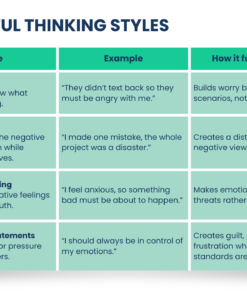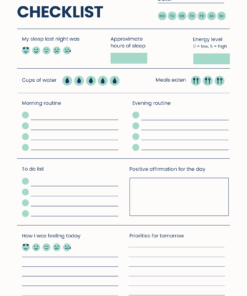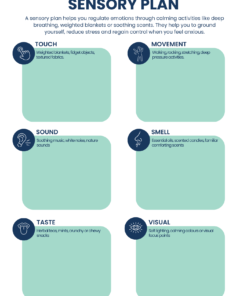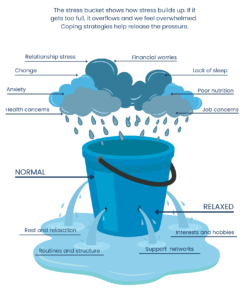Change, Occupational Therapy
How occupational balance can improve your mental wellbeing, one small change at a time
The juggling act of life: finding your balance with small changes and the help of occupational therapy
When life feels like a chaotic whirlwind it’s incredibly easy to let the different areas of our lives become unbalanced. Perhaps the demands of work creep into our evenings and weekends leaving precious little time for rest and relaxation. Or maybe the constant pressures of daily life lead to us neglecting fundamental self-care activities like eating well or getting enough sleep. These imbalances, however small they might seem initially, can gradually chip away at our mental and emotional wellbeing, leaving us feeling overwhelmed, mentally drained and like we’re constantly running on empty.
Instead of feeling like we need to perform a complete life overhaul – a daunting prospect that often leads to procrastination – focusing on small, manageable changes can be the key to restoring what occupational therapists call occupational balance. This isn’t about achieving some mythical perfect equilibrium, it’s about finding a healthy mix of activities that nourish our mental and emotional health, allowing us to thrive rather than just survive.
What exactly is occupational balance?
In the world of occupational therapy, occupational balance is a core concept. It’s the understanding that engaging in a diverse range of activities that are both meaningful to us and necessary for our daily lives is crucial for maintaining good mental health. Think of your life as having different segments like work, rest, leisure, social connection, self-care and productivity. When we spend an excessive amount of time and energy on one segment, perhaps work, to the detriment of others like rest or leisure, it throws our overall balance out of kilter.
This overemphasis on one area can lead to increased stress, burnout and a general feeling of dissatisfaction, even if we are succeeding in that one area. Occupational balance isn’t about spending exactly the same amount of time on everything—it’s about finding a personalised rhythm that feels sustainable and fulfilling, allowing us to engage in a variety of occupations that support our overall wellbeing.
Recognising when the scales tip: signs of occupational imbalance
It can be helpful to recognise the signs that your own occupational balance might be off. These signs can manifest in various ways:
Feeling exhausted but unable to rest: This is a common indicator of imbalance. You might feel physically and mentally drained, but when you try to relax, your mind races or you struggle to switch off. This can be a sign that you’re overdoing it in one area and not allowing yourself sufficient time for restorative rest: a vital occupation for mental health.
Neglecting self-care due to work or other commitments: When the demands of work or other responsibilities consistently push self-care activities like healthy eating, exercise or even just taking a shower to the bottom of your priority list, it’s a clear sign of imbalance. Occupational therapists emphasise that self-care is not a luxury but a fundamental occupation that supports our ability to engage in all other areas of life.
Losing enjoyment in activities that once brought happiness: If you find yourself no longer deriving pleasure from hobbies or leisure activities that you used to enjoy, it could be a sign that your life is out of balance. When we’re constantly focused on one area, we can neglect the activities that bring us joy and help us recharge, leading to feelings of apathy and disengagement. Occupational therapists recognise the importance of leisure and play as essential occupations for mental wellbeing.
Feeling stuck in a cycle of stress and avoidance: An imbalance can create a vicious cycle. When we’re overwhelmed, we might avoid activities that could actually help us feel better, further exacerbating the imbalance and increasing our stress levels. Occupational therapists work with individuals to break this cycle by identifying small, manageable steps towards re-engaging in meaningful activities.
How tiny changes can restore balance: the occupational therapy approach
The beauty of occupational therapy’s approach to restoring occupational balance is its emphasis on small, sustainable changes. Here are some examples of tiny tweaks you can make that align with occupational therapy principles:
-
Adding a five-minute break between tasks to prevent burnout: Occupational therapists often recommend incorporating short breaks throughout the day to prevent mental fatigue and maintain focus. Even a five-minute break to stretch, walk around or simply close your eyes can make a significant difference to your energy levels and ability to cope with demands.
-
Incorporating one enjoyable activity into your routine, even if it’s just listening to music while cooking: Occupational therapists understand the importance of leisure for mental wellbeing. Even a small dose of enjoyment each day can boost your mood and provide a sense of pleasure. Listening to music while you cook is a simple way to integrate a bit of leisure into an existing daily task.
-
Setting a simple boundary like turning off work notifications at a certain time: Occupational therapists often work with individuals to establish healthy boundaries to prevent work from encroaching on personal time. Turning off work notifications in the evening is a small but powerful step towards creating more time for rest, relaxation and other meaningful activities.
-
Taking a few deep breaths before starting a stressful task: Occupational therapists teach various stress management techniques, including breathing exercises. Taking a few deep breaths before tackling a stressful task can help calm your nervous system and improve your ability to cope.
-
Scheduling a short social interaction each day: Occupational therapists recognise the vital role of social connection in mental health. Making a conscious effort to connect with someone, even for a brief chat, can combat feelings of loneliness and isolation.
-
Preparing a healthy snack instead of reaching for convenience food: Occupational therapists often address nutrition as part of their holistic approach to wellbeing. Making a small effort to prepare a healthy snack can improve your energy levels and overall mood.
-
Spending five minutes in nature: Occupational therapists understand the therapeutic benefits of nature. Even a short walk in a park or simply sitting in your garden for a few minutes can reduce stress and improve your sense of wellbeing.
Start small for lasting change: the occupational therapy philosophy in action
Improving occupational balance isn’t about making drastic changes overnight that are likely to be unsustainable. Instead, it’s about recognising small opportunities throughout your day to gently shift your routine in ways that better support your mental health. This aligns perfectly with the core principles of occupational therapy, which focuses on enabling participation in meaningful daily life activities through small, achievable steps. Think of it like adjusting the sails on a boat: small adjustments to the sails can significantly alter the course of the journey over time.
For more guidance and support in making these small, sustainable changes to restore your occupational balance and improve your mental health, consider exploring resources like workbooks on habit formation and routine building. These tools often provide a structured approach to identifying areas for improvement, setting realistic goals and tracking your progress.
Ready to reclaim your balance?
If you recognise that your life feels a little out of kilter and you’re longing for a greater sense of balance and wellbeing, remember that small, consistent changes guided by the principles of occupational therapy can make a world of difference. You don’t need to overhaul your entire life. Just start with one tiny tweak today.
Take a small step towards a more balanced life now!
If you’re in the UK and would like to explore how focusing on small changes to restore your occupational balance can improve your mental health, consider seeking support from a registered occupational therapist. They can provide personalised assessment, guidance and strategies tailored to your unique needs and circumstances. Don’t wait to start your journey towards a more balanced, fulfilling and mentally healthy life.
Start small for lasting change
Improving occupational balance isn’t about making drastic changes overnight. It’s about recognising small opportunities to shift your routine in ways that support your mental health.
For more guidance, my workbook on habit formation and routine-building provides a structured approach to making small, sustainable changes that create lasting balance.
Step into change: your toolkit for everyday wellbeing
Start your journey today with our self-help guides, resources and practical, supportive tools designed to help you take that first step towards positive, lasting change. Whether you’re building a routine, managing emotions or finding balance, there’s something here to support you.





